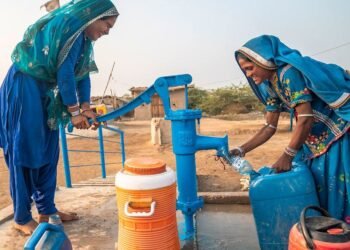In today’s world, women are taking up prominent roles in various sectors, including politics. However, the path to political leadership remains marred by numerous challenges, one of the most concerning being the abuse and mistreatment faced by women who dare to enter this male-dominated arena.
The female legislators of the Minority Caucus of Parliament have condemned the recent derogatory remarks made by the Ashanti regional chairman of the New Patriotic Party (NPP), Bernard Antwi-Boasiako, also known as Chairman Wontumi, against Professor Jane Naana Opoku Agyemang, the Vice-Presidential candidate of the National Democratic Congress (NDC).
The female Minority Caucus of Parliament expressed that it is deeply distressing and unacceptable that in this day and age, a woman of Professor Jane Naana Opoku Agyemang’s stature and accomplishments would be subjected to such baseless and demeaning attacks on her character and appearance.
Such comments not only reflect a profound lack of respect for women in leadership positions but also perpetuate harmful stereotypes and discrimination.
“The recent allegations made by Chairman Wontumi regarding Professor Jane Naana Opoku Agyemang’s marital status and regional origins are equally reprehensible and without merit. These unfounded accusations only serve to further undermine her credibility and integrity as a politician and academic.”
Hon. Comfort Doyoe Cudjoe (Dep. Minority Whip, Vice Chair of the Female MPs Caucus & MP, Ada)
The caucus highlighted that the same Ashanti regional chairman of the New Patriotic Party (NPP), Bernard Antwi-Boasiako made a similar derogatory and wicked statement against the good professor on July 10, 2020.
The caucus further emphasized that “this is unacceptable, and as women in leadership, we condemn these disparaging comments from Bernard Antwi-Boasiako (Chairman Wontumi).”
Abuse against women in political leadership is a global phenomenon, transcending borders and cultures. It manifests in multiple forms, ranging from verbal harassment, sexism, and character assassination to physical threats, online abuse, and even sexual violence.
Such mistreatment targets not only the politicians themselves but also their families and supporters, creating an environment of fear and intimidation.
The abuse of women in political leadership has far-reaching consequences for both individuals and society as a whole. It perpetuates gender inequality and reinforces harmful stereotypes, discouraging other women from pursuing political careers.
This not only deprives society of diverse perspectives but also hinders progress towards a more inclusive and representative democracy.
“The recent derogatory remarks made by the regional chairman are utterly unacceptable and disgraceful. Such behavior undermines the integrity of political discourse and reflects poorly on both Chairman Wontumi and the New Patriotic Party (NPP). Instead of engaging in petty insults, Bernard Antwi-Boasiako and the New Patriotic Party (NPP) should rather prioritize addressing the collapsing economy and delivering on their promises to the Ghanaian people.”
Hon. Comfort Doyoe Cudjoe (Dep. Minority Whip, Vice Chair of the Female MPs Caucus & MP, Ada)
Addressing the Issue
To combat the abuse of women in political leadership, a multi-faceted approach involving various stakeholders is required.
Governments must enact and enforce laws that protect women politicians from abuse and hold perpetrators accountable. This includes strengthening legislation against online harassment and ensuring swift and fair legal proceedings.
Moreover, men in politics must actively support and advocate for gender equality, challenging sexist behavior and standing in solidarity with their female counterparts. Male allies can play a significant role in changing the culture of politics and making it more inclusive.
In response to these pressing concerns, the caucus noted that it is committed to promoting a culture of respect, dignity, and equality for all individuals, regardless of their gender, background, or ethnic affiliation.
Additionally, building networks of support within political parties, civil society organizations, and international bodies can help create safe spaces for women politicians to share experiences, seek advice, and collectively address the issue.
“As representatives of the people and advocates for gender equality, it is imperative that we stand united in denouncing such reprehensible behavior and demand strict accountability from those who perpetrate it. We call upon Chairman Wontumi and all other individuals who engage in such deplorable conduct to publicly apologize to Professor Jane Naana Opoku Agyemang and refrain from making any further derogatory remarks.”
Hon. Comfort Doyoe Cudjoe (Dep. Minority Whip, Vice Chair of the Female MPs Caucus & MP, Ada)
Promoting gender equality and challenging harmful stereotypes through education and awareness campaigns is crucial in changing societal attitudes towards women in politics. This can be achieved through workshops, training programs, and media campaigns that highlight the importance of women’s representation in leadership roles.
The abuse of women in political leadership is a grave issue that requires urgent attention. By creating an environment free from abuse, we can ensure that women have equal opportunities to contribute to political decision-making processes.
It is the collective responsibility of governments, political parties, civil society, and individuals to stand up against this injustice and pave the way for a more inclusive and representative democracy. Only by working together can we build a future where women can thrive and lead without fear of abuse or discrimination.
READ ALSO: ‘Gold’ Threatens Ghanaians



















